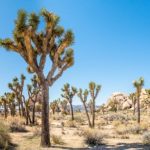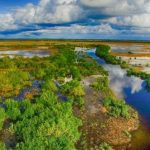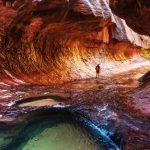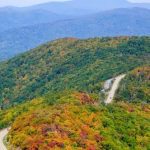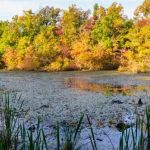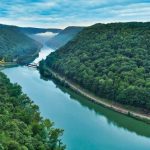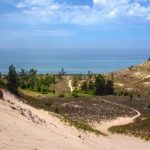 Mysteries
Mysteries  Mysteries
Mysteries  History
History 10 Surprising Stories About the Texas Rangers
 Humans
Humans 10 Philosophers Who Were Driven Mad by Their Own Theories
 Miscellaneous
Miscellaneous 10 Video-Game-Worthy Weapons and Armors from History
 Weird Stuff
Weird Stuff 10 Psychics Who Accurately Predicted Wartime Events
 The Arts
The Arts 10 Pieces of Art Inspired by a Broken Heart
 Health
Health 10 Science Fiction-Sounding New Medical Treatments
 History
History 10 Surprising Facts About the Father of Submarine Warfare
 Space
Space Ten Astonishing New Insights into Alien Worlds
 Weird Stuff
Weird Stuff 10 Bizarre Summer Solstice Rituals Still Practiced Today
 Mysteries
Mysteries Top 10 Haunting Facts About the Ghost Ship MV Alta
 History
History 10 Surprising Stories About the Texas Rangers
 Humans
Humans 10 Philosophers Who Were Driven Mad by Their Own Theories
Who's Behind Listverse?

Jamie Frater
Head Editor
Jamie founded Listverse due to an insatiable desire to share fascinating, obscure, and bizarre facts. He has been a guest speaker on numerous national radio and television stations and is a five time published author.
More About Us Miscellaneous
Miscellaneous 10 Video-Game-Worthy Weapons and Armors from History
 Weird Stuff
Weird Stuff 10 Psychics Who Accurately Predicted Wartime Events
 The Arts
The Arts 10 Pieces of Art Inspired by a Broken Heart
 Health
Health 10 Science Fiction-Sounding New Medical Treatments
 History
History 10 Surprising Facts About the Father of Submarine Warfare
 Space
Space Ten Astonishing New Insights into Alien Worlds
 Weird Stuff
Weird Stuff 10 Bizarre Summer Solstice Rituals Still Practiced Today
10 Puzzling Disappearances at Zion National Park
Nestled in southwestern Utah, Zion National Park is a remarkable natural marvel with a rich history. Once known as Mukuntuweap by indigenous peoples, the area was renamed Zion by Mormon pioneers in the late 1800s, signifying its dual role as a sanctuary and refuge. Designated as Mukuntuweap National Monument in 1909 by President Taft, this 16,000-acre (6,475-hectare) expanse officially became Zion National Park in 1919. Despite its allure, the park harbors enigmatic secrets, including a series of puzzling disappearances. This list considers ten haunting cases of people who went missing within Zion National Park.
Related: 10 Cold Cases of Missing People in National Parks
10 William H. Evans
On June 27, 1927, equipped with only 15 feet (4.6 meters) of rope and a small canteen, William H. Evans tried to climb Zion National Park’s Great White Throne, a monolith composed mostly of Navajo sandstone. After scaling the Throne’s southern saddle, he spent the night at the summit. When Evans failed to return the next day, a search party was formed. Following days of searching the terrain, Evans was discovered tangled up in a manzanita bush, close to death. Without water or food for almost three days in the summer heat, Evans remembered little about the previous days.
Evans was later carried down from the mountain on a makeshift stretcher and needed months to recover. Evans later said he had started a controlled slide down the Throne’s steep slopes but lost control and tumbled hundreds of feet. Evans’s climb of the Great White Throne was reported in more than 100 national newspapers, while local audiences celebrated the heroics of the brave rescue team that scaled the Great White Throne and rescued Evans. Until 1967, Zion Park Services refused to grant anyone permission to climb the steep canyon-side faces.[1]
9 Maurice Francis Graham
While air crashes were uncommon in January 1930, a Western Air Services Boeing 95 mail plane disappeared during a snowstorm. Captain Maurice Francis Graham was a WWI hero who received both the Distinguished Flying Cross and French Legion of Honor awards. Viewed as a highly skilled pilot, Graham piloted an airmail route from Los Angeles to Salt Lake City for Western Air Services.
After being reported flying over Cedar City, Utah, Graham was never heard from again. Resources were utilized by the US Postal Service, airlines, Iron County residents, and the Army Air Corps to try to find Graham, but efforts were unsuccessful. Late that spring, Graham’s plane was discovered by Parowan residents.
Remarkably, Graham managed to land safely at night during a snowstorm on top of a 9,500-foot (2,896-meter) mountain without any visual cues to help him land. Instead, to land, Graham relied on only a turn and bank indicator, an airspeed indicator, an altimeter, and a compass. The mail bin was found still sealed, and fuel was still in the wing tanks. Messages revealed that Graham had headed east.
Graham’s remains were later discovered in late July by his friends and wingmen in Spanish Hollow, Crystal Creek Canyon, with the securities mailbag still in his arms. In his last log, Graham wrote, “Arrived: 2:35 AM. No destination.” Today, a memorial stands on Kanarra Mountain, near where Graham crash-landed. Kanarra Mountain is situated slightly north of Zion National Park’s Kolob Canyons.[2]
8 Lane Kelton Cottrell
A 17-year-old kitchen helper, Lane Kelton Cottrell, was fatally injured in September 1951 after he fell off a cliff at a resort in Zion National Park. Lane and two friends were hiking in the area, close to the previously mentioned White Throne, when Lane left the trail and told his friends that he was going to descend at a more relaxed pace.
While descending, Cottrell fell off a cliff. When Cottrell failed to reach the lodge that night, park rangers were alerted, and a search began. During this time, one park ranger reported seeing lights from the area where Cottrell fell and believed these might have been signals for help.[3]
7 Frank Wilson Johnson
The Virgin River and surrounding parts of Utah in the 1960s saw severe floods. The peak discharge of the Virgin River was on December 6, which surpassed previous high amounts recorded in 1930. The flooding of the Virgin River in 1966 was so significant that experts reported it probably has a recurrence interval of 100 years. While perhaps not as bad as the flooding in 1966, 1961 also saw flooding of the Virgin River.
On one occasion, two young hikers went missing in Zion National Park at the end of September 1961 following a flash flood that sent a 14-foot (4.3-meter) crest of water through the Virgin River. Alvin Dunyon Nelson and Frank Wilson Johnson were both 17-year-olds and were presumed dead. The bodies of three other hikers were also found following the flood. A rescue party, including 200 volunteers, later searched the entire Virgin River without any results. One sheriff said he was certain that Johnson and the others were buried under canyon debris.[4]
6 1965 Cedar Breaks John Doe
While checking a climbing site, two park rangers discovered human remains on July 16, 1965, close to Cedar Breaks cliffs near Sunset View Lookout at the Cedar Breaks National Monument. The rangers found the body positioned between two logs in a doubled-over position, around 300 feet (91 meters) from the highway.
In addition to an empty wallet, an empty suitcase, and a cane, the rangers found $1.51 and a flashlight on the body. One of the Iron County sheriffs who helped recover the remains said that he believed they had been in the area for around a year. At the time the body was found, no individuals were reported missing from Cedar City or Iron County, and there were no reports of abandoned vehicles in the area within the previous year. The identity of the person remains a mystery.[5]
5 1970 Washington County Jane Doe
The body of an unidentified woman, who is thought to have been dead for at least several months, was discovered on October 1, 1970, by a Washington County road worker near St. George. Lyle Stringham was operating a bulldozer 5 feet (1.5 meters) from the county road to Gunock north of U.S. 91.
At first, the woman’s body was believed to belong to a Native American, but teeth fillings suggested otherwise. Law enforcement also initially thought the unidentified woman might have been Katharine Shapiro, a woman from Santa Ana, California, who went missing in early November 1969 because Shapiro was the only person reported missing in the area in recent months. No clothes belonging to the female were found in her immediate vicinity.
The district attorney and Washington County Sheriff later said they had not ruled out the possibility of foul play. Even though the case is over 40 years old, there have not been any rule-outs in the case regarding the potential identities of the unidentified female.[6]
4 1994 Kane County John Doe
On February 2, 1994, hikers discovered a human skull approximately 1,320 feet (402 meters) south of State Road 89 and two miles west of Big Water in a crevice in a remote and rugged area. The hikers initially believed they had stumbled upon an archaeological discovery but later learned that the skull had dental work. A potentially significant clue was found in the form of a paper discovered in the corpse’s pants pocket, originating from Flagstaff, Arizona. However, these documents were unfortunately too faded to be of help.
The body was wearing a red baseball cap, plaid jacket, flannel shirt, blue denim pants, and action tennis shoes. Authorities believe that the man was dead for around 10 to 15 years before his body was discovered. Examination of the skull suggests that it sustained two blows from a blunt object. The Kane County Sheriff stated that he thinks the man hitched a ride from Flagstaff and was either killed along the way or murdered in Kane County.[7]
3 Bernadette Vandermeer
Washington County sheriff’s deputies investigated the death of 29-year-old Bernadette Vandermeer in August 2006. She fell more than 1,000 feet (300 meters) from the top of Angel’s Landing in Zion National Park. Deputies reported that Bernadette fell from an overlook area on top of Angel’s Landing while hiking with her husband.
Two aspects make Bernadette’s case peculiar: Firstly, law enforcement investigated the death to ensure no foul play was involved. However, they ultimately determined it to be an accident. Secondly, Bernadette’s accident is part of a series of deadly falls at Zion National Park. Four similar deaths had been recorded at the park since 1983, including Bernadette’s accident. Zion National Park is ranked the 10th most dangerous national park, with 22 deaths due to falling occurring in the last decade.[8]
2 Michael Milken
In 2014, the remains of an unidentified male were found in North Creek, just north of Virgin, Utah. Hikers discovered the skeletal remains in a drainage wash following heavy rain. Subsequently, additional remains, including a pelvis, were found. Initially, investigators determined that the remains belonged to a white male between the ages of 35 and 45 at the time of his death. They believe that the man’s remains had been in the location where they were discovered for one to two years before his death. In 2015, short tandem repeat (STR) analysis failed to yield a known match.
Details of the case were then entered into the NamUs system. Despite efforts to solve the case, it remained unsolved. In 2023, the Utah Department of Public Safety submitted forensic evidence from the case to Othram in The Woodlands, Texas, where Othram scientists successfully made a DNA extract from the man’s remains.
A comparison of the unidentified man’s DNA profile to a woman thought to be his sister later proved to be a match. Eventually, the Utah Office of the Medical Examiner confirmed the man’s identity as Michael Lance Miliken, originally from Texas. Miliken traveled from Texas to Las Vegas and then to Hurricane, Utah, located in Washington County. The authorities returned Miliken’s remains to his family.[9]
1 Corbin McMillen
Forty-two-year-old Corbin McMillen was found deceased at the base of Moonlight Buttress in February 2021. The Buttress is located on the West Rim Trail close to Angel’s Landing. McMillen informed his mother in advance that he planned to hike the Angels Landing trail. However, that evening, park officials found his vehicle unoccupied at the Grotto Trailhead. Following the discovery of his vehicle, park officials initiated a formal search for McMillen.
Later that same day, search team members discovered McMillen’s body at the base of the Buttress with injuries consistent with a high-elevation fall. Angels Landing is renowned for its steep ascent along a sharp ridge, which overlooks a 1,000-foot drop-off. In some parts, chains are bolted into the rock to assist hikers in navigating the steep sections.[10]
